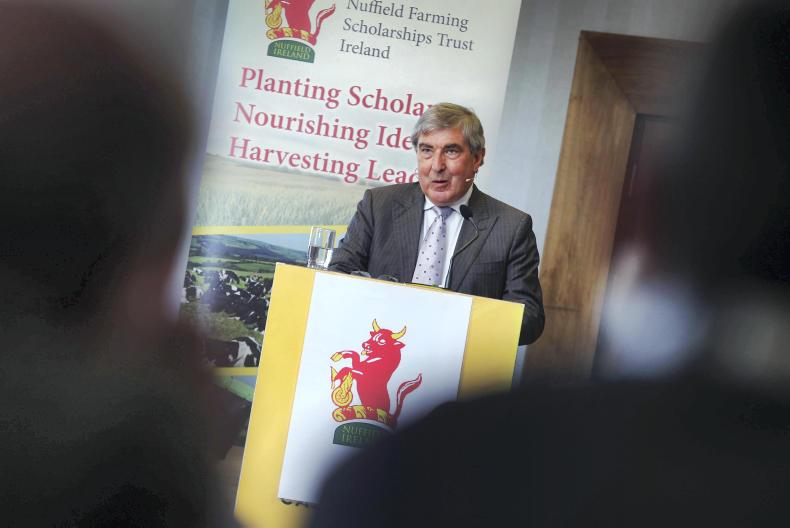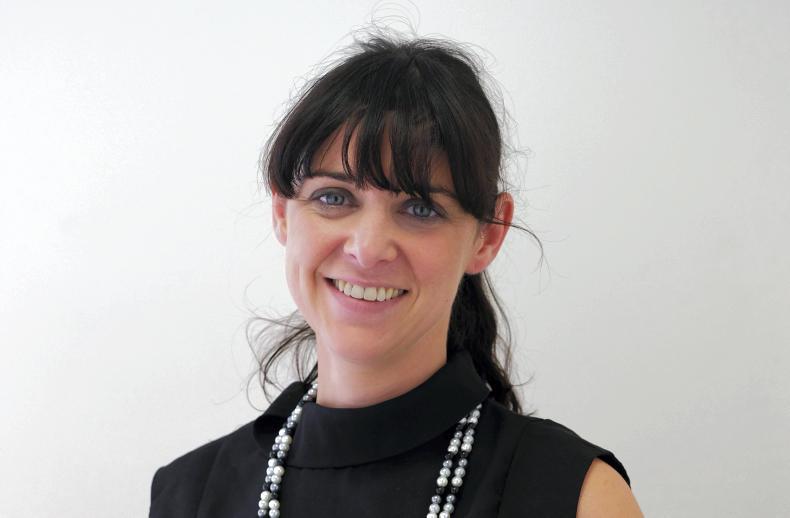Last Friday I attended the annual Nuffield Ireland conference. The stated mission of this organisation is to “discover, inspire and support people to develop their capacity, character and confidence to promote positive change and world-class leadership in agriculture, food and farming”. Six scholars presented on various topics, from social licence to managing multiple dairy enterprises.
Denis Brosnan, former managing director and chair of Kerry Group, was the keynote speaker at the conference. Denis spoke about his experience in leadership and specifically called out the youth of the Kerry management at the time as being crucial to the company’s success. He said that they recognised their youth and brought in the talent that they needed: “Youth was key, keeping the organisation young was a key differentiator, but this was easy when the company was growing.”
In a world of social media where people are suffering from a lot of anxiety and pressure, I ask: is it still possible for young people to take risks or even be in the position to consider taking them, the way that the Kerry management at the time were able to, or would fear of failure prevent this?
An American report on student mental health outlined that female students felt pressure to be “effortlessly perfect”: smart, accomplished, fit, beautiful and popular, all without visible effort. Today, duck syndrome is a real thing – a duck appears to glide calmly across the water, while beneath the surface it is frantically and relentlessly paddling. This is compounded further today by the use of smartphones and social media.

Denis Brosnan speaking at the Nuffield Ireland Conference 2018.
On Saturday, I misplaced my phone for a few hours. This was the first time I was without my phone since I had a two-day, between-jobs, no-phone situation in August. This, I sadly admit, was torturous; I was about as anxious as I could have been. I therefore read Margaret Hawkins’ article (pages 24-25) on coping with adversity and building resilience with much interest. Margaret attended a talk from Dr Harry Barry where he called out that “smartphones are ruining our lives”.
Denis also referred to this technology disconnect in his presentation, when outlining how the young Kerry management of the 1970s achieved what they did. He said: “We mingled and talked a lot more with one another and shunned the dreadful memo syndrome.” (Now replaced with email and social media.) Has the art of conversation been lost with the rise in the number of phones? Yes we are communicating more, but are we really just talking less?
The Nuffield conference is a great networking event and I believe that people are putting more importance on structured networking, realising that true value and learning cannot be achieved through a Twitter conversation.
We need young people to have the emotional resilience Dr Barry spoke of so that they can take the risks needed and not be focused on appearing perfect in every academic, non-curricular and social endeavour taking up their time.
“Ever tried. Ever failed. No matter. Try again. Fail again. Fail better.” – Samuel Beckett.
Read more
Education and leadership – time to move the dial
Feel the fear and do it anyway
Last Friday I attended the annual Nuffield Ireland conference. The stated mission of this organisation is to “discover, inspire and support people to develop their capacity, character and confidence to promote positive change and world-class leadership in agriculture, food and farming”. Six scholars presented on various topics, from social licence to managing multiple dairy enterprises.
Denis Brosnan, former managing director and chair of Kerry Group, was the keynote speaker at the conference. Denis spoke about his experience in leadership and specifically called out the youth of the Kerry management at the time as being crucial to the company’s success. He said that they recognised their youth and brought in the talent that they needed: “Youth was key, keeping the organisation young was a key differentiator, but this was easy when the company was growing.”
In a world of social media where people are suffering from a lot of anxiety and pressure, I ask: is it still possible for young people to take risks or even be in the position to consider taking them, the way that the Kerry management at the time were able to, or would fear of failure prevent this?
An American report on student mental health outlined that female students felt pressure to be “effortlessly perfect”: smart, accomplished, fit, beautiful and popular, all without visible effort. Today, duck syndrome is a real thing – a duck appears to glide calmly across the water, while beneath the surface it is frantically and relentlessly paddling. This is compounded further today by the use of smartphones and social media.

Denis Brosnan speaking at the Nuffield Ireland Conference 2018.
On Saturday, I misplaced my phone for a few hours. This was the first time I was without my phone since I had a two-day, between-jobs, no-phone situation in August. This, I sadly admit, was torturous; I was about as anxious as I could have been. I therefore read Margaret Hawkins’ article (pages 24-25) on coping with adversity and building resilience with much interest. Margaret attended a talk from Dr Harry Barry where he called out that “smartphones are ruining our lives”.
Denis also referred to this technology disconnect in his presentation, when outlining how the young Kerry management of the 1970s achieved what they did. He said: “We mingled and talked a lot more with one another and shunned the dreadful memo syndrome.” (Now replaced with email and social media.) Has the art of conversation been lost with the rise in the number of phones? Yes we are communicating more, but are we really just talking less?
The Nuffield conference is a great networking event and I believe that people are putting more importance on structured networking, realising that true value and learning cannot be achieved through a Twitter conversation.
We need young people to have the emotional resilience Dr Barry spoke of so that they can take the risks needed and not be focused on appearing perfect in every academic, non-curricular and social endeavour taking up their time.
“Ever tried. Ever failed. No matter. Try again. Fail again. Fail better.” – Samuel Beckett.
Read more
Education and leadership – time to move the dial
Feel the fear and do it anyway







 This is a subscriber-only article
This is a subscriber-only article










SHARING OPTIONS: